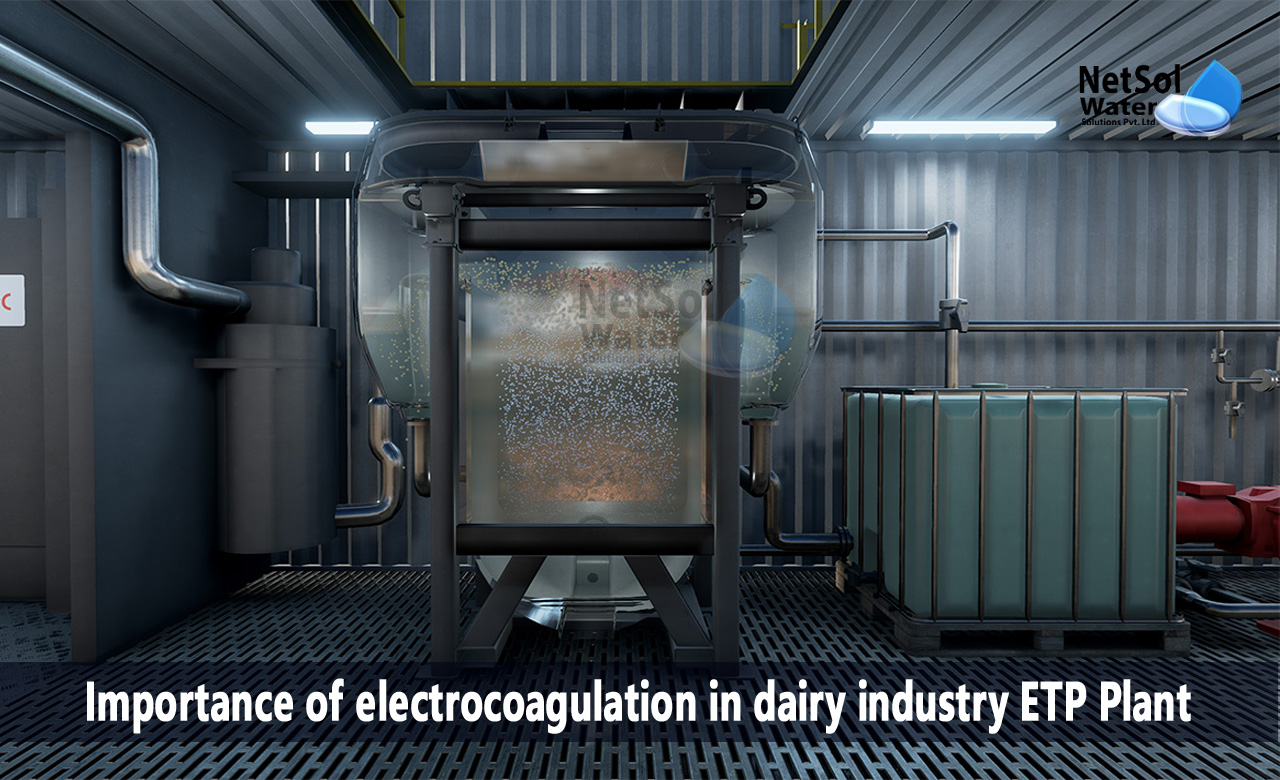The dairy sector is quite significant as a result of the huge global consumption and demand for dairy products. Like many other foods and beverages, water plays a significant role in their manufacturing.
Dairy goods don't often contain water because milk is one of the key ingredients, although it is frequently used for heating, cooling, cleaning, and disinfecting. Dairy wastewater treatment options must therefore adhere to these requirements.
What is Importance of electrocoagulation in dairy industry ETP Plant?
1- Sludge's New Value
A by-product of several coagulation procedures is sludge. Chemical coagulation produces a lot of sludge, some of which may be hazardous because of the chemicals used in the process. The volume of produced sludge is lower in EC since there are no chemical additions (apart from pH adjustment), and the sludge is typically non-hazardous. The non-hazardous sludge that is created during the dairy wastewater treatment process can also be recycled.
Fertilizers frequently contain phosphorus and nitrogen because they support strong plant development. The nitrogen and phosphorus in the dairy effluent will precipitate into the sludge during the EC process, and this sludge may one day be sold to nearby farms or horticulture businesses, as a useful soil supplement.
2- Flocculation and sedimentation
The capacity of coagulation treatments to segregate and flocculate particles, in the treatment of dairy effluent, is one of the key factors behind their popularity. In addition to lighter materials like lipids that might float to the top, these particulates can also comprise heavy particles that settle to the bottom of the reaction tank.
While, lighter particles are lifted to the surface of the tank as floc by bubbles created on the cathode, the charge applied to the electrodes and the subsequent metallic ions released from the anode can destabilize the solution, and cause solids to coagulate and precipitate out of it. The separation of solids during the post-clarification procedure is facilitated by this method.
3-Fats' Recyclability
Except for whole milk, other milk varieties have lower fat content. In 2%, 1%, and skim milk, some of the original raw milk fat has been removed. The wastewater from the producing site can contain that residual fat. During the EC process, cathode bubbles cause fats to float to the surface of the tank.
It is possible to skim these fat and other flocculated dairy WWT particles off the top of the solution. The fat can then be taken out and possibly used as a recycled energy source after being separated, from the remainder of the plant.
4- Water Reuse
Businesses must become more mindful of their current and future raw water usage, in light of the water crisis. Dairy businesses must develop ways to use water more sustainably because they consume a lot of raw water. One approach to do this is to reuse wastewater.
Operation and Maintenance
Once the system's specifics, like the ideal pH, current density, electrode material, and layout, have been worked out, the EC system is rather straightforward to use. To further streamline processes, larger systems are automated. The way EC systems are built also makes maintenance quick and easy.
Conclusion
With an effective system for treating dairy effluent, this is simple to do. Specialized electrocoagulation is one such treatment strategy that is used in conjunction, with other procedures including filtration, clarifying, and a disinfection unit to polish/eliminate any lingering biological pollutants.
Water that has been properly purified can be utilized again for tasks like cooling or cleaning machinery. Additionally, the operating costs of the dairy company's raw water usage can be decreased, by recycling wastewater. The sophisticated treatment technique of electrocoagulation aims to increase the efficacy, and economic viability of effluent treatment.
What do we offer?
The introduction of electrochemical technology into dairy wastewater treatment systems, is pioneered by Netsol Water. With prior clients in this sector, we have utilized our own cutting-edge EC systems to assist them in improving their wastewater treatment procedure, in order to adhere to legal requirements and sustainably oriented objectives.
Netsol Water is Greater Noida-based leading water & wastewater treatment plant manufacturer. We are industry's most demanding company based on client review and work quality. We are known as best commercial RO plant manufacturers, industrial RO plant manufacturer, sewage treatment plant manufacturer, Water Softener Plant Manufacturers and effluent treatment plant manufacturers. Apart from this 24x7 customer support is our USP. Call on +91-9650608473, or write us at enquiry@netsolwater.com for any support, inquiry or product-purchase related query.



